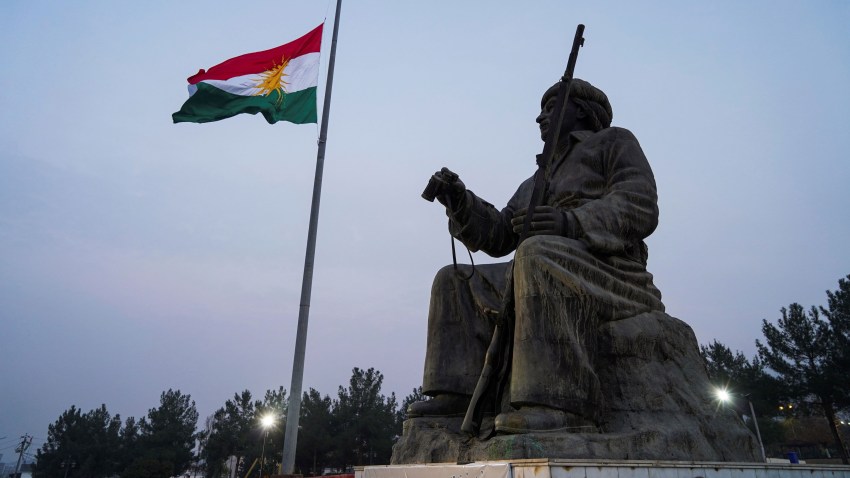Last month, the Iraqi army clashed with Kurdish peshmerga forces in the district of Makhmour, leading to multiple injuries and killing three soldiers on each side. While such clashes have featured prominently in the region’s history over the past century, the U.S.-led invasion and occupation of Iraq 20 years ago ushered in a new political settlement in Baghdad, by which the country’s Shiite, Kurdish and Sunni leaders began sharing power. This new reality shifted the logic of the country’s ethno-sectarian violence from exclusive, meaning aimed at toppling the government, to inclusive, which is instead a way to negotiate power within the political system. The recent violence in Makhmour should be seen in this light.
On the surface, the clash was the result of a power vacuum created by the departure from the district in October of the Kurdistan Workers’ Party, or PKK, a transnational Kurdish militant political organization that fights for Kurdish rights in Turkey and Syria. The PKK has increased its authority over many parts of the region, particularly in the wake of the territorial defeat of the Islamic State in 2017. Both Baghdad and Erbil—the capital of the Kurdistan Region—view the PKK, which has been designated a terrorist organization by Turkey and the U.S., as a problem. Together with Turkey, they effectively removed it from Makhmour.
That they then turned their guns on each other has to do with the broader shifts in post-Saddam Iraq, when Makhmour and other areas in northern Iraq became known as the “disputed territories”—a stretch of land that Kurds, Arabs and other ethnic and religious minority groups all claim to be theirs. Although the 2005 Iraqi constitution outlined a process to settle these claims, the conflict in these areas has never been resolved. Instead, the territories have become arenas in which the “equilibrium of violence” is periodically tested as part of negotiations between the central government in Baghdad and the Kurdistan Regional Government, or KRG, in Erbil. The resulting equilibrium that is created then indicates the changing state of power relations between the two sides.

